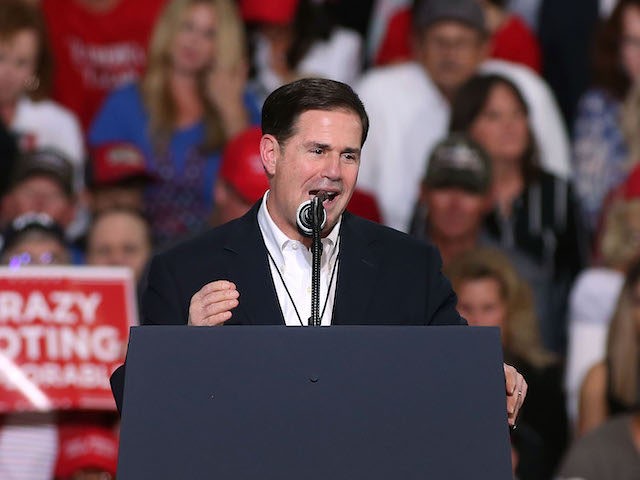A growing number of Republican governors are putting an end to the extra $300 a week in enhanced unemployment benefits that businesses and many economists say is holding back employment.
Arizona Gov. Doug Ducey on Thursday that his state would stop the enhanced payments on July 10.
He is also throwing in a sweetener for people who decide to return to work: A $2,000 bonus paid to workers who get and keep a full-time job for at least 10 weeks. Part-time workers will get $1,000.
Ducey is continuing federally sponsored programs that extend the standard 26 weeks of pay by another 29 weeks and allow gig workers such as Uber drivers to qualify for unemployment pay, although those payments will also be reduced by $300 a week.
Ducey is allocating $300 million in federal relief cash on a first come-first served basis to pay for the back-to-work bonuses. A worker who gets a job earning more than $25 an hour does not qualify.
AZ making the right choice to throw in a rehire bonus. https://t.co/n8W1ICWPKX
— Adam Ozimek (@ModeledBehavior) May 13, 2021
Ducey slashed unemployment checks by more than half despite celebrating the health of the state’s economy throughout the pandemic, noting the state shed fewer jobs than most. In Arizona, more people are employed now than before the pandemic, though the unemployment rate is also higher because the pool of jobseekers has grown.
“Although more people are ready to work today in Arizona than before the pandemic, many businesses are struggling to fill vital positions,” Ducey said in a statement. ”We cannot let unemployment benefits be a barrier to getting people back to work.”
The business community reacted positively to the governor’s decision, with Ducey’s office releasing statements praising his decision as a way to kick-start the economy. But left-wing groups said it was the wrong move and will hurt ordinary Arizonans struggling to make ends meet while seeking work.
Ducey’s move follows the lead of 12 other states led by Republican governors who acted in the past week and argued in ending the extra unemployment pay that it was providing an incentive for laid-off workers to stay off the job.
Ducey’s decision will affect about 32,000 people currently receiving regular unemployment and another 176,000 people enrolled in programs for the long-term unemployed and contract or gig workers, according to data from the state Department of Economic Security.
Businesses have cited the extra $300 as a reason they are struggling to find workers and a growing number of economists agree. The Biden administration has repeatedly claimed that factors are more important at preventing people from returning to work. Some workers are worried about exposure to the coronavirus if they return to service sector jobs, according to government surveys, and many working mothers have left the workforce to care for children still attending school online.
Ducey aims to help those working mothers by providing three months of child care assistance for people who return to work but earn less than $25 an hour. A variety of federal assistance programs will be used to pay for the aid. He also is using federal cash to provide community college scholarships and high school equivalency diploma preparation for unemployed workers.
Ducey said the state’s economy is taking off as nearly half the population has now had at least one dose of COVID-19 vaccine.
“With ample supplies of the COVID-19 vaccine on hand and millions of Arizonans vaccinated, people feel safer and are finally returning to life in Arizona as we knew and loved it before,” Ducey said in a video announcing his moves. “People are back in the office, restaurants are at full capacity, and tourists are flocking to our state.”
Arizona’s unemployment soared after layoffs triggered by the pandemic last March. The state’s unemployment trust fund, which builds up cash during periods of low unemployment, was at $1.1 billion before the pandemic hit a year ago. It had fallen below $90 million in February, but Ducey used federal virus relief cash to boost the balance.
Ducey’s action Thursday came as the U.S. Labor Department said the number of Americans seeking unemployment benefits fell last week to 473,000, a new pandemic low and the latest evidence that fewer employers are cutting jobs as consumers ramp up spending and more businesses reopen
Twelve other states have announced an end to federal unemployment programs. Alabama, Arizona, Arkansas, Idaho, Iowa, Mississippi, Montana, North Dakota, South Carolina, Tennessee, Utah, and Wyoming are dropping all federal programs, including the programs for self-employed and gig workers or extend benefits beyond their usual 26-week limit. Most will also revive work-search requirements for recipients, which were put on hold during the pandemic.
–The Associated Press contributed to this report.

COMMENTS
Please let us know if you're having issues with commenting.